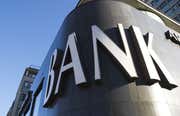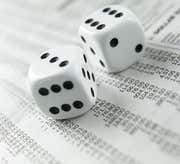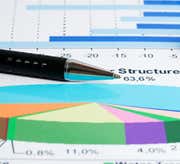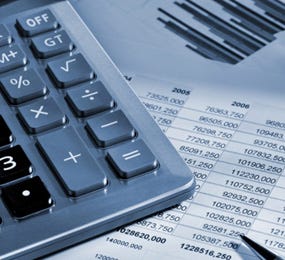If you are new to banking or have lived in other countries where the banking system was untrustworthy, you might be wondering why you would want to use a bank at all. It's certainly possible to get by without a bank account. Prepaid debit cards make it possible to shop online and in store – and even pay bills and withdraw money from ATMs – just like someone who has a bank account. The IRS will deposit your tax refund to a prepaid debit card and many employers will load your paycheck onto one (though this option has many drawbacks). Online services like PayPal and Venmo let you send and receive money without a bank account. You can also operate on an all-cash system by cashing your paycheck at Walmart or a check-cashing store, then paying your bills in person, at a Walmart Money Center or at a check-cashing store. (For related reading, see How to Find the Right Prepaid Debit Card and Places to Keep Your Money When You Don’t Trust the Banks.)
However, if you meet the basic qualifications to open a bank account, you might appreciate the many uses of a bank: keeping your money more secure, making your life easier and letting you save and invest for the future.
1. Security
Storing all your money in cash at home isn't safe. Your home could be burglarized. Someone who knows you and knows that you keep your money at home – a child, relative or friend – could pilfer your stash. Burglars know most of the places people hide their money. Even worse, you could be robbed while you’re at home. If your house floods or catches on fire, your money will likely be destroyed, and homeowners insurance covers just a limited amount of lost cash. If you bury it in the backyard, the container you put it in could become damaged or start decomposing and destroy your money. You could also simply forget about all the places you've stashed money. Did you tape that $100 to the back of the family photo in your bedroom, slide it into your favorite book on page 52 or hide it in an oatmeal canister in the back of the pantry? Keeping all your money in prepaid debit cards is also less secure than keeping it in the bank.
If you live paycheck to paycheck, the most you’re ever at risk of losing or having stolen is the amount of your last paycheck – a sum you clearly can’t afford to lose if money is tight. Keeping your money secure is paramount. And once you have more than a few hundred dollars to your name, you’ll want to protect your savings. The most secure place to put your money is a bank account. As long as you choose a legitimate bank that has Federal Deposit Insurance Corporation (FDIC) insurance (or a credit union that has National Credit Union Association insurance), any money you put in the bank (up to FDIC insurance limits) is protected. To date, the guarantee provided by the FDIC has proved to be completely reliable, even during times of financial crisis like 2008 recession or the savings & loan crisis of the early 1990s. (To learn more about the FDIC's protection, see Are Your Bank Deposits Insured? and Bank Failure: Will Your Assets Be Protected?)
2. Convenience
When you have money in the bank, you can access it from anywhere – in person at your local branch, from the ATM at your grocery store, online, across town and even overseas. A checking account also makes it much easier and cheaper to pay bills – you'll no longer have to visit a store, check-cashing center or service provider’s office to make payments, and you won't need to purchase a cashier's check or pay a transfer fee to send those payments. Instead, you can use your bank’s free online bill pay service, or if you’d prefer to do things the old-fashioned and less secure way, you can write a check and put it in the mail, which is also free except for the cost of postage. (The benefits of using a bank to protect your money are similar to the benefits of using a credit union. For more about banking with a credit union, see The Main Differences between Credit Unions and Banks and Tired of Banks? Try a Credit Union.)
3. Saving and Investing
Once you are earning more money than you need to get by each month, you'll want to go beyond a checking account and start saving and investing your money to give yourself more financial security. With money in savings, you can handle irregular expenses like car repairs even if they don’t fit into your monthly budget. A large enough emergency fund can tide you over during a period of unemployment. And once you have several months’ worth of emergency savings, you’ll want to transfer your extra savings into a retirement account. You simply can't take advantage of the opportunity to earn money in the stock market or earn interest on deposits if you're only willing to keep your money under your mattress or on a prepaid debit card. (Find out what putting your money to work can do for you in Stashing Your Cash: Mattress or Market?)
Requirements for Opening a Checking Account
Before you spend too much time deciding which bank to use, you should first make sure you will qualify to open a checking account. Here's what banks generally need from customers.
- Opening Deposit
The amount of money you’ll need for an opening deposit depends on the bank you choose and the type of account you want to open. Plenty of banks will allow you to open an account with as little as $1, so if you don’t have much to deposit, shop around until you find a bank that wants you as a customer. You’re more likely to need a substantial opening deposit at a traditional brick-and-mortar bank than at an online bank, especially if you want to avoid unnecessary fees (which you do). - Identification
To open an account in person, you’ll need to provide identification such as a Social Security card, birth certificate, passport, driver’s license or state identification card. To open an account online, you’ll be asked to provide your date of birth, Social Security number and possibly your driver’s license number, and the bank may follow up with requests for copies of supporting documents. If you are opening a U.S. bank account and are not a U.S. resident, you'll need one or two of the following: foreign passport with photo, foreign driver's license with photo, foreign state-issued ID, employment ID with photo, college ID with photo, alien registration card with photo, permanent resident card with photo. - Contact Information
This will include your physical address (where you live), phone number and email address.
The reason banks ask for all this information is to comply with federal laws that require them to obtain and verify identifying information for every person who opens an account. The USA PATRIOT Act imposes these requirements on financial institutions in order to detect and prosecute money laundering and the financing of terrorism; to prevent corrupt foreign officials from using the U.S. banking system; to identify and report suspicious banking activities and more. For the average person, these requirements might be a mild inconvenience, but shouldn't pose any real problem.
Also, you will need to be at least 18 years old (or the age of majority, which is higher in some states – 19 in Alabama, for example) to open a bank account. If you're younger, you may be able to open a joint account with a parent or legal guardian. (If you're opening your very first account, read Your First Checking Account.)
In the next section, we’ll talk about how to choose a bank.
Banking: How to Choose a Bank
-
 Personal Finance
Personal FinanceWhat Else Banks Can Help With (Besides Banking)
As competition increases and technology advances, banks, credit unions and savings institutions are offering more services intended to attract customers. -
 Investing
Investing4 Behaviors That Sabotage Your Investment Goals
If you can't figure out why you're not achieving the returns you want, these behaviors might explain why. -
 Personal Finance
Personal FinanceHandling High-Yield Savings Accounts
Is a high-yield savings account right for you? Read on to find out what they have to offer. -
 Personal Finance
Personal Finance9 Signs You Can't Afford Your Mortgage
These indicators show that your financial situation isn't as stable as it could be. -
 Personal Finance
Personal FinanceAdvanced Budget-Cutting Strategies
Once you've mastered basic budgeting, it's time to dig deeper into how you can use your budget to meet your goals. -
 Personal Finance
Personal FinanceOnline Banks: Lower Costs And Little Sacrifice
For many, online banking has become a day-to-day routine. Still, there are some holdouts who refuse to accept the method. -
 Personal Finance
Personal FinanceForget Your Bank Account - Use Your Credit Card
What if you used your credit card as a bank account? Believe it or not, this strange strategy could actually work.



